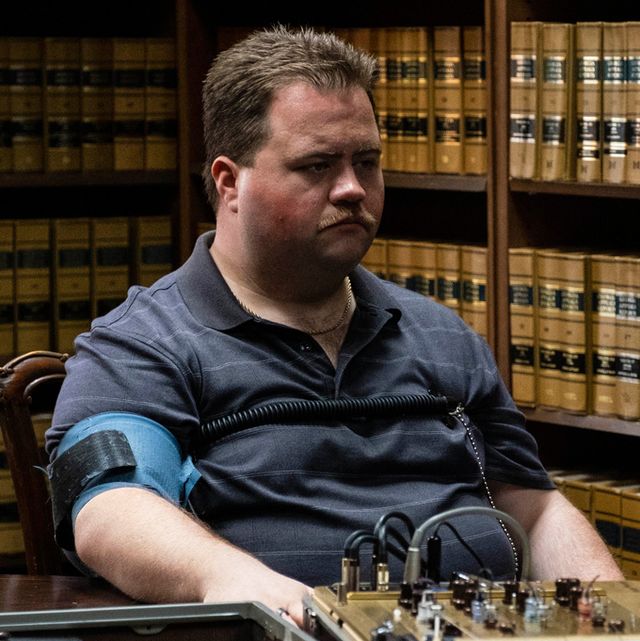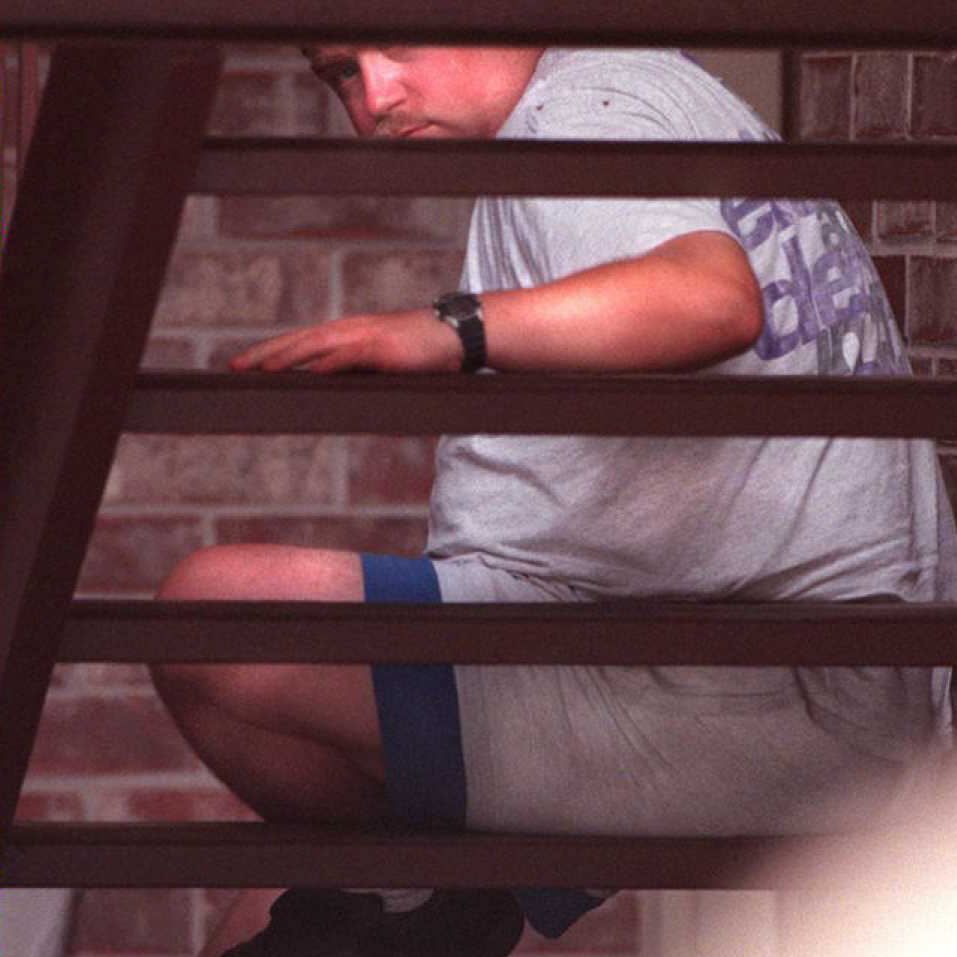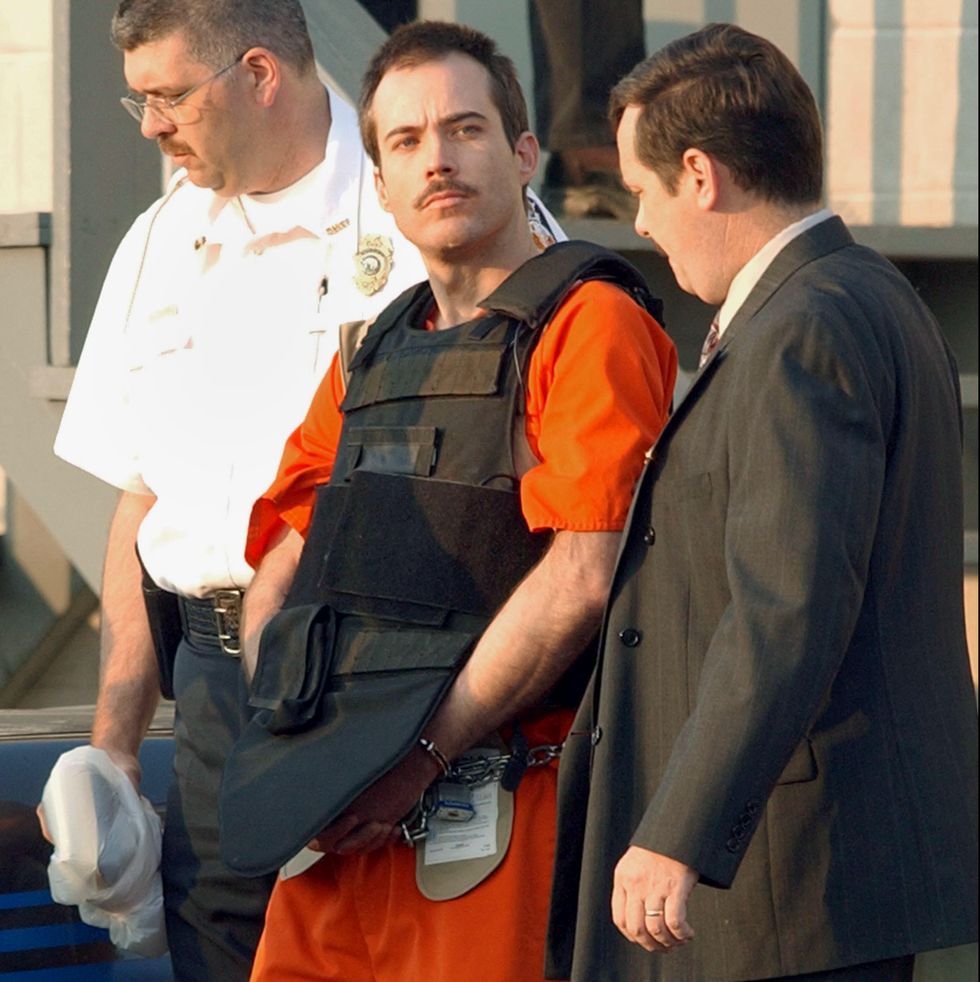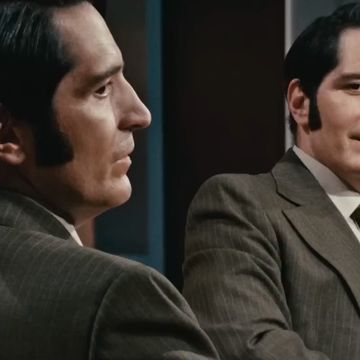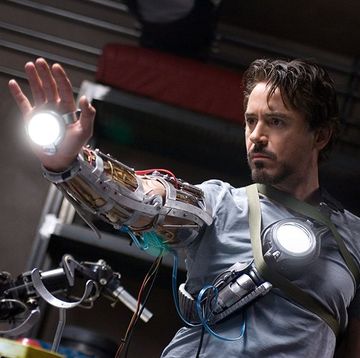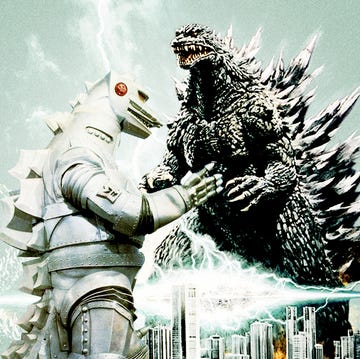Oscar-winning director Clint Eastwood likes a true story—his last few films, including The Mule, The 15:17 to Paris, Sully, and American Sniper, have all told tales that are rooted in real-life events. So it’s not exactly surprising that his latest movie, Richard Jewell, is also based on factual happenings. In this case, Eastwood tackled the bombing of Atlanta’s Centennial Park and the media firestorm that upended the life of one innocent man. Here’s what you need to know.
What was the Centennial Olympic Park bombing?
In 1996, Atlanta hosted the Summer Olympics, which saw over 10,000 athletes from around the world competing in the games. The city built Centennial Olympic Park in its downtown for the games, and the new park hosted concerts and other events during the games.
On the night of July 27, 1996, the band Jack Mack and the Heart Attack played a concert at the park to an audience thousands strong. Around one in the morning, a man called 911 warning of a bomb in Centennial Olympic park, and around 20 minutes later, a pipe bomb exploded. Alice Hawthorne, from Albany, Georgia, was killed in the blast, while Melih Uzunyol, a cameraman from Turkey, died of a heart attack. More than 100 others were injured.
Who was Richard Jewell?
The bombing could have had an even higher toll if it weren’t for the actions of security guard Richard Jewell, who noticed a backpack under a bench at the park. When no one around claimed the bag as their own, Jewell helped clear a perimeter around the backpack before the bomb went off.
While he was initially hailed as a hero, Jewell became a suspect in the case in part due to his history as a law enforcement officer. Marie Brenner reported for Vanity Fair in a 1997 article that serves as the basis for Eastwood’s film that while working as an apartment security guard, Jewell had arrested a couple for allegedly making too much noise—and was himself arrested in turn for impersonating a cop. A condition of his probation mandated that he seek counseling. And while working as a campus security guard at Piedmont College, he earned a reputation for being unnecessarily zealous in raiding dorms and writing up students. After multiple complaints, he left the job, and moved home with his mother in Atlanta to look for work at the Olympics.
Citing Jewell’s interest in all things police related, the FBI investigators assigned to the Centennial Park bombing developed a theory that Jewell had planted the bomb in order to stage an opportunity to play the heroic law enforcement officer—something one cop really did at the 1984 Los Angeles olympics. A search of Jewell’s home turned up his extensive gun collection, two hollowed-out grenades he used as paperweights, and parts of a fence that had been damaged in the bombing.
After an informant at the FBI reportedly tipped off Atlanta Journal-Constitution reporter Kathy Scruggs that Jewell was suspected of the crimes, a media firestorm descended upon the security guard. Many outlets ran with the news as if Jewell was guilty of the bombing. "They probably have enough to arrest him right now, probably enough to prosecute him,” Tom Brokaw said on NBC during his coverage of the story, "but you always want to have enough to convict him as well. There are still holes in this case.”
(One fun fact: At the time of the bombing, Jay Leno described Jewell as having "a scary resemblance to the guy who whacked Nancy Kerrigan.” In Eastwood’s film, Jewell is played by Paul Walter Hauser, the same actor who in 2017 portrayed Kerrigan’s assailant Shawn Eckardt in I, Tonya.)
In the press, Jewell was depicted as maladjusted, a 34-year-old who lived with his mother and was described in the AJC as fitting profile of the bomber. But Robert Ressler, one of the FBI profilers who inspired Netflix’s Mindhunter, told Brenner that no profile classification for “hero bombers” existed. Jewell and his mother Bobi were hounded by reporters, and tailed by a cavalcade of FBI cars wherever they went.
How was Jewell cleared, and who was the real bomber?
In the end, there just wasn’t evidence linking Jewell to the bombing, and in October 1996, the U.S. attorney’s office issued a letter stating that Jewell was no longer a suspect.
It would take years for the real bomber, a man named Eric Robert Rudolph, to be arrested. The attack on Centennial Park was only his first bombing—Rudolph also bombed two abortion clinics and a lesbian club, killing one additional victim.
After spending five years on the FBI’s most wanted list, Rudolph was arrested while dumpster diving in 2003 and confessed to the bombings. He said that he targeted the Olympics because he felt the games promoted "the values of global socialism, as perfectly expressed in the song ‘Imagine’ by John Lennon, which was the theme of the 1996 games.” He also said that he hoped to embarrass the U.S. for allowing abortion to be legal. Rudolph was sentenced to life imprisonment for the attacks.
What happened in the aftermath of the case?
Attorney General Janet Reno apologized to Jewell in 1997, saying she regretted "very much the leak that made him an object of so much public attention.” Jewell continued to work in law enforcement, including as a sheriff’s deputy for Meriwether County, Georgia.
Jewell filed libel lawsuits against many news outlets after he was cleared, including NBC News, CNN, and the Atlanta Journal-Constitution. All except the AJC settled with Jewell. (Brenner reported that the NBC settlement cost the network more than $500,000.) The AJC case dragged on for years, even after Jewell’s death in 2007 from complications of diabetes. In 2011, a Georgia court ruled in favor of the newspaper, finding that its reporting had been accurate to the facts was they were known at the time.
According to the AJC, the stress of the lawsuit took a toll on Scruggs’ health. She died at the age of 42, in 2001. Eastwood’s film has been criticized for depicting Scruggs, who’s played by Olivia Wilde, as sleeping with the FBI informant who tipped her off to the investigation of Jewell—an assertion that isn’t backed by evidence.
"We hereby demand that you immediately issue a statement publicly acknowledging that some events were imagined for dramatic purposes and artistic license and dramatization were used in the film's portrayal of events and characters,” the AJC wrote Eastwood and Warner Bros. in a letter.
Both Warner Bros. and Wilde initially defended their portrayal of Scruggs. The film's screenwriter, Billy Ray, told Deadline that he "will stand by every word and assertion in the script."
"The movie isn’t about Kathy Scruggs," said Ray, "it’s about the heroism and hounding of Richard Jewell, and what rushed reporting can do to an innocent man."
On Thursday, Wilde took to Twitter to expand upon her earlier remarks. "The perspective of the fictional dramatization of the story, as I understood it," she wrote, "was that Kathy, and the FBI agent who leaked false information to her, were in a pre-existing romantic relationship, not a transactional exchange of sex for information."
But on social media, writers pointed out that depictions of female journalists as having sex with sources in films like Richard Jewell and Trainwreck fuel sexual harassment against women in journalism.
